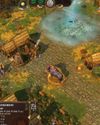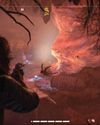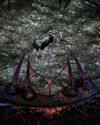
The games industry never stood a chance. Raphael van Lierop, narrative director of Far Cry 3, believes the medium inherited crunch from its parent industries – the expectation of overwork baked into software and filmmaking long before a programmer first managed to steer a pixel across a screen. By the time van Lierop joined a game studio in the early 2000s, burnout was considered best practice.
“We didn’t at all associate these things with poor management or poor planning practices,” van Lierop says. “We believed crunch was a necessary prerequisite to creating something exceptional.”
It was only after a dozen years of 70 to 80 hour weeks, as van Lierop found himself putting his kids to bed only to turn around and drive back to the office, that he recognised an unhealthy spiral. “I recall a night in particular during a really heavy crunch period, my wife looking over my shoulder and reflecting that she didn’t understand why I was making so many personal sacrifices for something that didn’t feel that much like ‘me,’” he says. “I realised I’d never stopped to ask myself if this was something I’d wanted. Shortly after that game shipped I decided that I would never go back to another AAA studio, and Hinterland was largely born from that decision.”
Hinterland, which develops top-rated Steam survival game The Long Dark, is part of a new wave of studios dedicated to ending crunch. Though divided by continents, cultures and genres, they face shared problems – and offer a glimmer of hope that the rest of the industry can one day find similar solutions.
BAD ROMANCE
This story is from the {{IssueName}} edition of {{MagazineName}}.
Start your 7-day Magzter GOLD free trial to access thousands of curated premium stories, and 9,000+ magazines and newspapers.
Already a subscriber ? Sign In
This story is from the {{IssueName}} edition of {{MagazineName}}.
Start your 7-day Magzter GOLD free trial to access thousands of curated premium stories, and 9,000+ magazines and newspapers.
Already a subscriber? Sign In

A New Dawn - The rise, fall and rise again of PC Gaming in Japan
The so-called 'Paso Kon' market (ie katakana's transliteration of 'Pasonaru Computa') in Japan was originally spearheaded in the 1980s by NEC's PC-8800 and, later, its PC-9800.

MARVEL: ULTIMATE ALLIANCE
Enter the multiverse of modness.

SLIDES RULE
Redeeming a hated puzzle mechanic with SLIDER

GODS AND MONSTERS
AGE OF MYTHOLOGY: RETOLD modernises a classic RTS with care

PHANTOM BLADE ZERO
Less Sekiro, more Wo Long: Fallen Dynasty

STARR-MAKING ROLE
Final Fantasy XVI's BEN STARR talks becoming a meme and dating summons

THIEF GOLD
Learning to forgive myself for knocking out every single guard.

HANDHELD GAMING PCs
In lieu of more powerful processors, handhelds are getting weirder

FAR FAR AWAY
STAR WARS OUTLAWS succeeds at the little things, but not much else shines

FINDING IMMORTALITY
Twenty-five years on, PLANESCAPE: TORMENT is still one of the most talked-about RPGs of all time. This is the story of how it was created as a ‘stay-busy’ project by a small team at Black Isle Studios